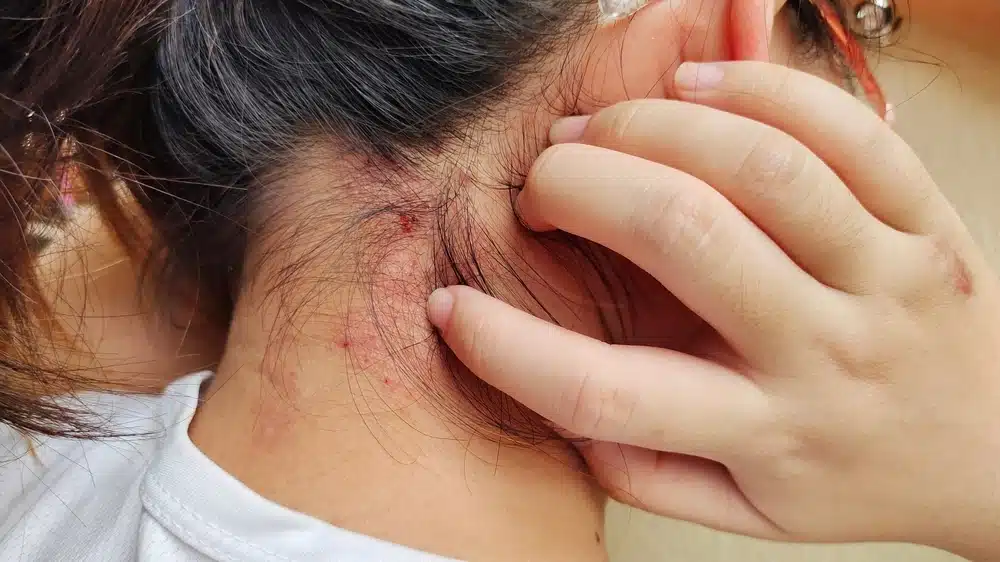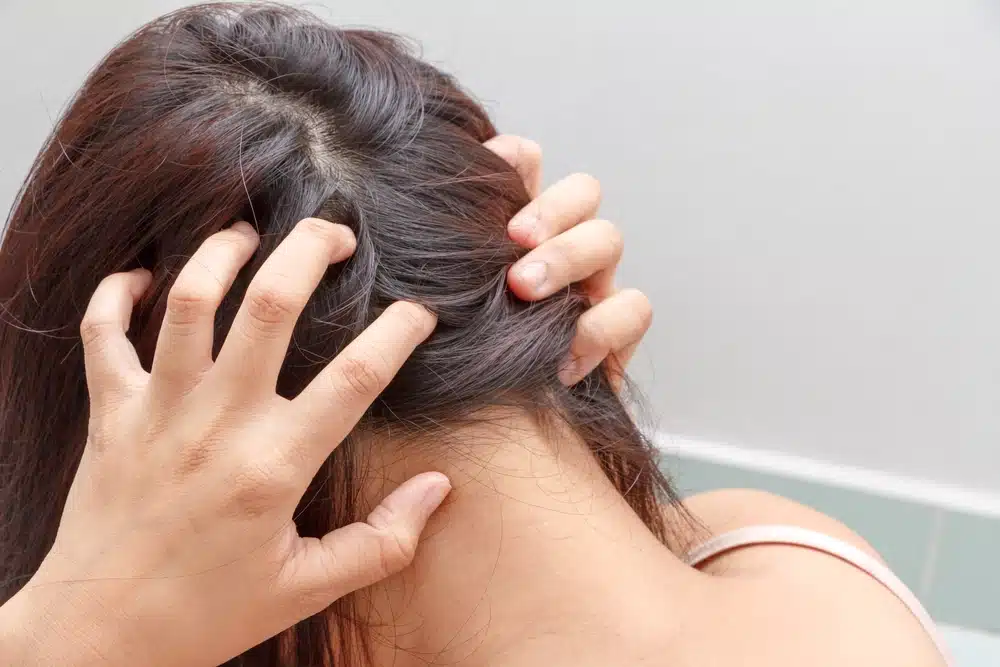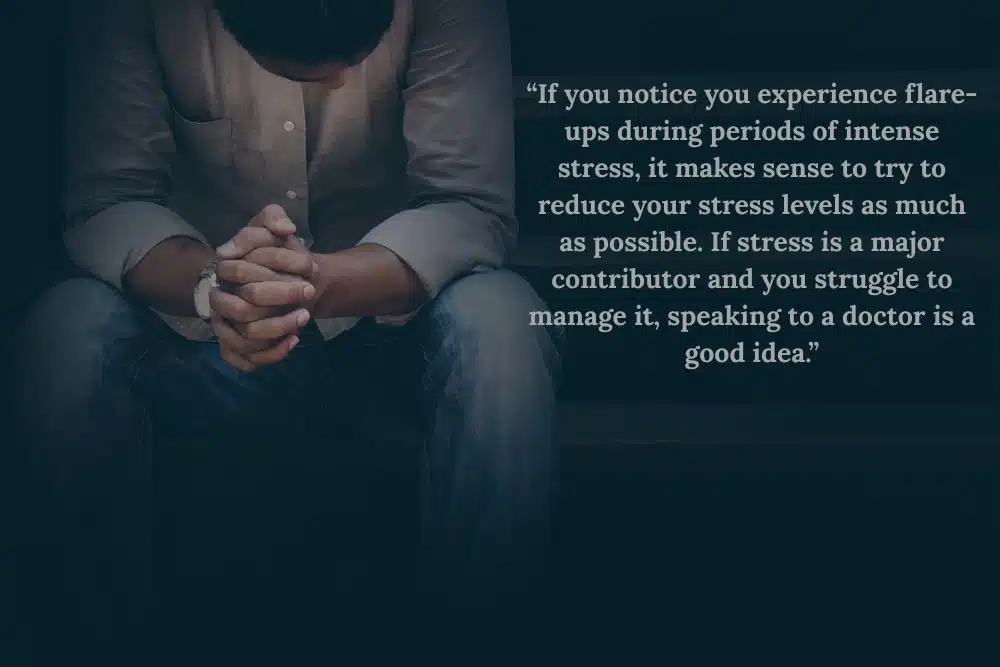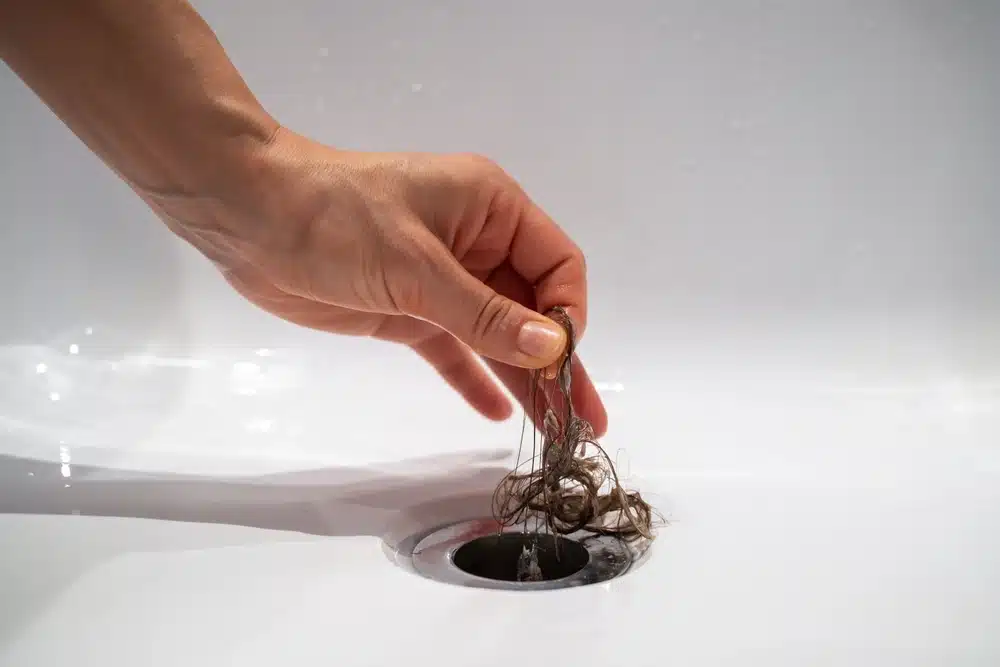Eczema, also known as atopic dermatitis, is a skin condition that causes a range of unpleasant symptoms on the outer layers of the skin, such as itchiness, dryness, redness, and rashes. Eczema can affect any part of the body, but there are specific types of eczema, such as follicular eczema, that target specific areas.
What is Follicular Eczema?
Follicular eczema is a type of eczema that targets the hair follicles, causing small red bumps. [1] These bumps occur in the hair follicle (a small hole where hairs grow from) and around the area.
Does Follicular Eczema Go Away?
Unfortunately, eczema is a chronic skin condition that has no cure. However, symptoms can be managed, and many people with follicular eczema can control their flare-ups and keep symptoms under control.
Like with other types of eczema, follicular eczema typically works in cycles. A person may go through periods of remission, when symptoms are minimal or even non-existent, followed by flare-ups. The severity and frequency vary depending on the individual.
What Causes Follicular Eczema?
Right now, the cause of follicular eczema is not fully known, but medical professionals and researchers have some guesses.
- Genetic Predisposition: Some have a genetic predisposition to eczema, making them more likely to develop this skin condition.
- Immune System Problems: Individuals with immune system problems may experience eczema symptoms.
- Environmental Triggers: There are several environmental triggers that can cause follicular eczema, such as mould, dust, soaps, perfumes, lotions, and other cosmetics.
- Decreased Barrier Function: People who lack specific skin barrier proteins may be more likely to develop follicular eczema due to the decreased barrier function.
It is also worth noting that follicular eczema tends to affect people with darker skin more often.
Follicular Eczema Symptoms
Symptoms of follicular eczema include:
- Small Bumps: These small red bumps are typically rough and either red or flesh-coloured.
- Itching: Like most types of eczema, follicular eczema can cause itching. It may be mild or quite severe. In severe cases, it is difficult for individuals to avoid scratching at the skin, worsening the symptoms.
- Dry and Rough Skin: Follicular eczema causes dry, rough skin wherever the person is experiencing an eczema flare-up.
- Inflammation: Follicular eczema can cause inflammation. The area will appear redder and more inflamed, and there may even be some swelling.
Where Does Follicular Eczema Occur?
When you think of hair follicles, you likely think of the scalp. Follicular eczema scalp is a possibility, but keep in mind the body grows hair in many places. As such, follicular eczema affects the chest, arms, thighs, buttocks, stomach, and legs, with the scalp actually being less common.
How to Get a Follicular Eczema Diagnosis
Are you worried that you have follicular eczema? Your next step is booking an appointment with a healthcare professional.
Only after a physical examination can you receive an official diagnosis of the skin condition. Plus, the healthcare professional can determine whether it’s follicular eczema causing the symptoms or another skin condition, such as irritant contact dermatitis.
The most common way to understand follicular eczema triggers is with a patch test. This involves a patch being applied to the skin with several suspected allergens. The patch is left on for forty-eight hours, after which the doctor examines the area to see if any symptoms have occurred.
A faster test is a prick or scratch test, which can be performed in thirty minutes. This involves placing an allergen on a pricked or scratched area to determine if the patient has an allergy.
Problems Associated with Follicular Eczema
The unpleasant symptoms, including itchiness and inflammation, are the most common problems of follicular eczema.
There is some good news – follicular eczema is not actually dangerous. This skin condition is highly irritating, but doesn’t affect your health.
However, self-confidence issues are common in people with eczema. As well as affecting skin, follicular eczema can hurt a person’s self-esteem, especially if the symptoms are very noticeable. As such, finding the best treatment to minimise symptoms is important for the individual’s physical and mental health.
Follicular Eczema Treatments
There is no single remedy to treat follicular eczema; instead, there is a range of treatment options individuals try to see what works best for them.
Understanding What Causes Flare-Ups
The first step is always understanding what is causing the flare-ups – once you know this, you can avoid the triggers where you can. Common triggers include:
- Heat
- Stress
- Irritants
- Allergens
So, if you notice you experience flare-ups during periods of intense stress, it makes sense to try to reduce your stress levels as much as possible. If stress is a major contributor and you struggle to manage it, speaking to a doctor is a good idea.
Topical Corticosteroids
One of the most commonly prescribed treatments for follicular eczema is topical corticosteroids, although some are available over the counter without a prescription (often these are not as strong). Stronger prescription topical steroids that contain ingredients like beclomethasone and betamethasone are frequently used for more severe cases of the skin condition. [2]
Bathing
Good skin care is essential for managing follicular eczema flare-ups. Bathing is a big part of that. To reduce inflammation, people with follicular eczema often take oatmeal or bleach baths.
Oatmeal Baths: To take an oatmeal bath, you simply need to add finely ground oatmeal to the warm bath water and then soak in the oatmeal bath for a while. It’s best to use finely ground oatmeal, as this is more likely to dissolve completely in the water.
Bleach Baths: A bleach bath involves diluting bleach in a tub of water. They are considered safe as long as you get the ratio right. If you have a full-sized bathtub filled with water, add around 100ml of bleach.
Moisturising the Skin
One of the biggest problems associated with follicular eczema is how it dries out the skin. As such, it is crucial always to keep the skin moisturized. Choose a moisturiser that is not irritating (free from perfume). Thick, heavy moisturisers work best here. You can also use petroleum jelly to lock in the moisture.
Phototherapy
Phototherapy is a clinical treatment that involves exposing the affected area to UV light. This works as it reduces inflammation and targets the overactive immune system. This treatment can be administered a few times a week for up to sixteen weeks.
Can Follicular Eczema Cause Hair Loss?
Yes – if follicular eczema affects the hair follicles on the scalp, it can cause hair loss. It may also cause beard or eyebrow hair loss.
The reason it causes hair loss is the damage and inflammation of the hair follicles. The hair follicles are a crucial part of the hair growth cycle, so when they are damaged, the growth cycle gets disrupted, leading to hair fallout.
On top of that, the intense itching associated with follicular eczema can cause the individual to scratch too much at the scalp, worsening the hair loss by further damaging the follicles.
Is Follicular Eczema Hair Loss Permanent?
Thankfully, no. Many people with follicular eczema hair loss find that their hair grows back, even without a hair loss treatment. Once the flare-up ends and the symptoms subside, the hair should grow back.
Treating Follicular Eczema Hair Loss
The best way to treat follicular eczema hair loss is by managing the symptoms and flare-ups, which involves the tips from above – taking oatmeal/bleach baths, topical corticosteroids, and moisturising the skin.
It is also important to avoid harsh hair care products – instead, use gentle products that do not irritate the scalp. If your hair loss worsens and the hair does not grow back, it’s best to speak to a dermatologist.
If you want to speak to hair loss experts, download our revolutionary hair track app.
Can You Get a Hair Transplant with Follicular Eczema?
Technically, yes, a hair transplant is possible for those with eczema. However, there are some things to keep in mind here. People with an active flare-up of follicular eczema are unlikely to be able to receive treatment, as a good surgeon will know this will compromise the outcome of the hair treatment.
If you have experienced permanent hair loss, whether due to eczema or typical genetic hair loss (such as male or female pattern baldness), and want a hair transplant, book a consultation with a hair surgeon. There, you can discuss your options, including whether the treatment is viable for you and any possible complications that the eczema may bring.
Follicular Eczema: Final Thoughts
Follicular eczema is a chronic skin condition that affects the hair follicles on the body. It often affects the chest, arms, back, legs, and stomach, but can also target other areas like the scalp and cause hair loss. While there is no cure for follicular eczema, there are ways to manage flare-ups, with treatments like topical steroids and phototherapy working well for many patients.
Are you more interested in treating hair loss? If you dream of a full head of hair, our team can help you. Check out our patients gallery to see what our expert team can do.
Sources:
- https://www.medicalnewstoday.com/articles/follicular-eczema#causes
- https://www.nhs.uk/conditions/topical-steroids/#:~:text=Mild%20corticosteroids%2C%20such%20as%20clobetasone,are%20only%20available%20on%20prescription.





